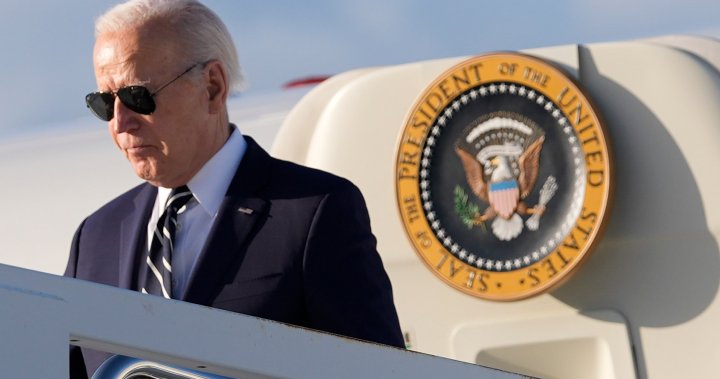President Joe Biden warned Prime Minister Benjamin Netanyahu the U.S. will not take part in a counter-offensive against Iran, an option that Netanyahu’s war cabinet favors after a mass drone and missile attack on Israeli territory, according to officials.
The threat of open warfare erupting between the arch Middle East foes and dragging in the United States has put the region on edge, triggering calls for restraint from global powers and Arab nations to avoid further escalation.
The U.S. will continue to help Israel defend itself but does not want war, John Kirby, the White House’s top national security spokesperson, told ABC’s “This Week” program on Sunday.
Jordan’s King Abdullah told Biden in a phone call on Sunday that any further escalation from Israel would widen the conflict in the region, Jordanian state media reported.
Israeli officials said Netanyahu’s five-member war cabinet favored retaliation in a meeting on Sunday, though the panel is divided over the timing and scale of any such response.
Iran launched the attack over a suspected Israeli strike on its embassy compound in Syria on April 1 that killed top Revolutionary Guards commanders and followed months of clashes between Israel and Iran’s regional allies, triggered by the war in Gaza.
However, the attack by more than 300 missiles and drones, mostly launched from inside Iran, caused only modest damage in Israel as most were shot down by Israel’s Iron Dome defense system and with help from the U.S., Britain, France and Jordan.
The email you need for the day’s
top news stories from Canada and around the world.
An Air Force base in southern Israel was hit but continued to operate as normal and a 7-year-old child was seriously hurt by shrapnel. There were no other reports of serious damage.

Two senior Israeli ministers signaled on Sunday that retaliation by Israel was not imminent and that it would not act alone.
“We will build a regional coalition and exact the price from Iran in the fashion and timing that is right for us,” centrist minister Benny Gantz said ahead of a war cabinet meeting.
Defense Minister Yoav Gallant also said Israel had an opportunity to form a strategic alliance “against this grave threat by Iran which is threatening to mount nuclear explosives on these missiles, which could be an extremely grave threat,” he said. Iran denies seeking nuclear weapons.
Gantz and Gallant are Israeli war cabinet members with decision-making powers.
In the meantime, Israel remained on high alert with emergency measures expected to remain in place until late on Monday, including a ban on school activities and caps on large gatherings.
“Over the last few hours, we approved operational plans for both offensive and defensive action,” Rear Admiral Daniel Hagari said in a televised statement.
Drone and missile interceptions cost around 4.5 billion shekels ($1.2 billion), according to Israel’s Channel 13 News, which said some of the cost was funded by the U.S.
Iranian army chief of staff Major General Mohammad Bagheri said on television, “Our response will be much larger than tonight’s military action if Israel retaliates against Iran,” and told Washington that its bases could also be attacked if it helped Israel retaliate.
Iranian Foreign Minister Hossein Amirabdollahian said Tehran had informed the United States its attack on Israel would be limited and for self-defense and that regional neighbors had been informed of its planned strikes 72 hours in advance.
A Turkish diplomatic source said Iran had informed Turkey in advance.
Iran said the attack was aimed at punishing “Israeli crimes,” but it now “deemed the matter concluded.”
Russia, China, France, Germany and Turkey, as well as Arab states Egypt, Qatar and the United Arab Emirates, urged restraint, and the U.N. Security Council was set to meet at 4 p.m. ET (2000 GMT) on Sunday.
The leaders of the Group of 7 nations condemned Iran’s attack and said they would work to stabilize the situation, warning in a statement that Tehran risked “an uncontrollable regional escalation.”





